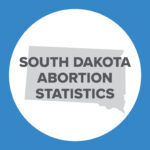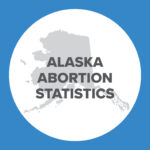Preventive Services Mandate Accommodation, 8th Edition, Falls Short
Liberty can be explained in a handful of words; deprivations of liberty usually require thousands. That is the case with the latest iteration of the accommodations permitted under the Obama Administration’s preventive services mandate, which was published on Friday, August 22. The Obama Health and Human Services (HHS) Department issued its latest rulemakings designed to ensure that the employees of the vast majority of religious nonprofits, as well as those of businesses like Hobby Lobby, can obtain zero-cost contraceptives, abortifacients and sterilization via their employers’ insurance plans.
As has become its custom, the Administration issued the rule, the eighth version it has promulgated since the dispute over the mandate first arose, on a Friday during a Congressional break. Media coverage of the new rule has been characteristically scant. One cannot fault the Obama HHS for being skittish on a topic where it has lost more than 90 percent of the court decisions rendered to date with respect to the lawsuits filed by more than 125 religious nonprofits and businesses. Media coverage has likely been scant for another reason – the tweaks HHS has offered in the new rule shift the focal point of the mandate while doing little to lessen its imposition on conscience.
When all is said and done, the contraception/abortion-inducing drug mandate takes advantage of the employee rosters and business relationships of objecting organizations and uses them to deliver the services to which they are objecting. The clear alternative – for government to use its own relationship with those employees as citizens and taxpayers to provide the same services directly – is eschewed. The new rules are a distinction without a difference, an imposition without a justification.
Under the policy struck down by the Supreme Court in Burwell v. Hobby Lobby and Conestoga Wood Specialties v. Burwell, profit-making businesses above a certain size were required to provide an array of contraceptive drugs and devices and sterilization as well as four abortion-inducing drugs in the health plans offered to each of their employees. The drugs and devices were to be insured on a preferred basis, i.e., without a deductible, co-pay or any other form of employee cost participation. Hobby Lobby and Conestoga Wood Specialties are two closely held, family-run corporations whose owners objected to offering insurance plans with coverage of those drugs and devices they regard as having abortifacient modes of action. Neither company objected to the coverage of drugs and devices that prevent conception, defined as the union of sperm and egg and not as implantation of the fertilized ovum in the uterus, the definition adopted by the Department of Health and Human Services with respect to the mandate.
By a 5-4 vote the Supreme Court upheld the application of the Religious Freedom Restoration Act (RFRA) to these companies, meaning that the burden fell on the Obama Administration to establish a compelling state interest for the mandate and to demonstrate that the mandate was the least restrictive means for the government to pursue that interest. Since the Administration clearly has less burden-some ways of delivering free birth control to the companies’ employees, including a method it had created for some religious nonprofits which undoubtedly enjoyed RFRA protection, the Court majority reasoned that at the very least this form of accommodation of religious nonprofits could be made available to Hobby Lobby and Conestoga.
The August 22 rules represent an Obama Administration attempt to devise an accommodation for these profit-making corporations even as it responds to other losses in lower courts and modifies that accommodation further to make it seem less burdensome to conscience. Under the prior version of the mandate, a religious nonprofit like the Little Sisters of the Poor was not exempt from providing insurance coverage of abortion-inducing drugs, sterilization and contraceptives for its employees. Instead, if it refused to provide such coverage, it was obliged to complete government paperwork, ESBA Form 700, so stating, an event that would trigger an obligation on the Little Sisters’ insurer or plan administrator to arrange for the cost-free coverage for the Little Sisters’ employees. Nothing else would change in the relationship between the employer and the insurer or plan administrator. Employee premiums would presumably be unaffected while the insurance company, or issuer, could recover its own costs by having an Obamacare charge, the Federally-facilitated exchange user fee, waived. The goal was apparently to make the entire transaction something of a non-event.
The first difficulty becomes clear when it is obvious that an insurer or plan administrator might hold the same conscientious objection as the employer. In the case of the Little Sisters, the plan administrator is Christian Brothers Services and Christian Brothers Employee Benefits Trust, which provides similar services for a variety of religious nonprofits and holds the same views on the moral issues at stake.
The new August 22 rule for nonprofits retreats another micro-step from the initial Obama proposal and, instead of having to sign ESBA Form 700 that triggers the start of the objectionable coverage, the Little Sisters, in the words of the rule, “may notify HHS in writing of its religious objection to coverage of all or a subset of contraceptive services.”
This is the single achievement of the dozens of new pages of rulemaking. In order to trigger the transfer of the responsibility for providing the cost-free drugs, devices and sterilizations, the objecting employer must merely send a letter to Washington, little more. Some would say, than a wave of the hand. But that fact only underscores that the process for providing the objectionable services is unchanged. The employer has previously engaged an insurance company and secured the services of a third-party administrator to carry out a scheme of coverage that reflects its deepest values – and the Obama Administration has commandeered that structure and redeployed it to serve purposes the government could meet without entangling the employer or its benefits partner in any way.
The burdens involved have been rendered somewhat smaller by this transfer but they are by no means de minimis. These observations follow:
- As noted above, the insurance company or third-party administrator that remains affected by this rule may bear the same conscientious beliefs about the services to be provided as the employer does. In the case of the Little Sisters of the Poor, this is clearly so. The insurer/administrator, too, is an employer and its character may be distinctly religious. It may not be religious but still maintain a policy position at odds with offering or managing a scheme of providing abortifacient drugs or devices. Even more starkly than for the employer, the imposition on its corporate conscience may pose a threat to its continued existence in the marketplace. It may likewise pose a barrier to the entrance of any similar insurer or third-party administrator in a future marketplace.
- The structure established here for the provision and coverage of drugs and devices covered by the preventive services mandate is precedent for this or any future Administration seeking to impose other types of medical abortion or induced abortion coverage on objecting employers and/or their insurers or administrators. As the Obama Administration rules were being tweaked, the state health officials in California were acting at the behest of Gov. Jerry Brown to require two Catholic universities in the state, Loyola Marymount and Santa Clara, to provide coverage of all “medically necessary” abortions in their employee plans. The extension of such mandates is legally fraught at present and will be resisted, but there is now evidence of political will to cross such a threshold in the future. If a drug that causes embryo destruction in the first days of life is “prevention,” it is likewise “prevention” if that destruction occurs a few weeks later.
- The Obama Administration has seized on dicta in the Hobby Lobby ruling to advance its argument that the accommodation of religious nonprofits, now extended to certain closely held profit-making businesses like Hobby Lobby, meets the two-part test established under the Religious Freedom Restoration Act. It may sincerely believe it has found a way to pursue the compelling interest of universal cost-free birth control in private insurance plans in the least restrictive or burdensome manner. But the high court majority pointed to the accommodation in its original form only as one more proof that a less restrictive means existed to provide the preferred coverage to Hobby Lobby’s employees than the straightforward coverage mandate. The existence of still less burdensome means cannot be doubted, as the government has the power to conduct or subsidize birth control transactions with Hobby Lobby’s employees in a manner that requires no interaction with the corporation whatsoever. These means include the provision of direct tax relief for such services or indirect relief in the form of health savings accounts, or, in the alternative, a waiver of income eligibility restrictions at all federally funded family planning clinics. The wisdom of such policies is another matter.
- The latter course will impose costs on U.S. taxpayers, it can be argued. The government should not be compelled to make expenditures when it has found a means to pursue a compelling government interest at the expense only of private parties endeavoring to offer health insurance plans that already enjoy enormous tax preferences. The argument has some force, but it has been integral to the Obama Administration’s case for the mandate that its implementation will be cost neutral or even a savings to employers, negating their claim of an imposition, especially when the accommodation is in place and the cost of the coverage is offset by the cancellation of certain exchange fees the insurers and third parties would otherwise be liable for. But if the array of preventive services is really so effective in reducing downstream costs, the notion that government is assuming a new taxpayer burden by funding such services directly for all employees of objecting employers collapses. Family planning services are routinely sold by their advocates on the grounds of their immense savings ($7.6 billion in 2010 alone, according to one source). It is by no means clear, therefore, that government cannot choose a less burdensome means of reaching the goal of universally cost-free birth control that respects the conscience convictions of employers and lowers tax burdens as well.
- Finally, nothing in the development of the new rule changes the situation for nonprofit organizations that object to the mandate but that are not religious organizations. For example, March for Life has filed a lawsuit against the mandate asserting its objection to the mandate even though March for Life “is not religious.” In its most recent filing March for Life explains that the recent rulemaking tweaking the accommodation “does not extend to non-religious pro-life non-profit organizations such as March for Life.” As for the proposed rule that would extend the accommodation even to for-profit corporations that object, March for Life explains that this proposed rule would not “include non-religious non-profit organizations such as March for Life.” Other pro-life organizations such as Susan B. Anthony List and Charlotte Lozier Institute, like March for Life, are not religious but do object to coverage of drugs and devices that can end human life after conception.
The positive impact of pursuing any number of alternatives to the latest accommodation is not restricted to simply respecting conscience rights. Society is strengthened when a robust set of diverse convictions about the most profound issues of life and health is respected and when citizens enjoy a civil society in which they can organize institutions and businesses around their own core convictions about sexual ethics, family life and other normative issues. The Obama Administration has set a course through the Affordable Care Act to narrow the choices available in civil society for people to organize around their core values. The legislation and rules at issue aim to standardize health insurance schemes with the concomitant result that civil society institutions are weakened or even destroyed. That Catholic and Christian civil institutions are the entities most vulnerable to this destruction merely shows us the times.
Chuck Donovan is the President of the Charlotte Lozier Institute.























